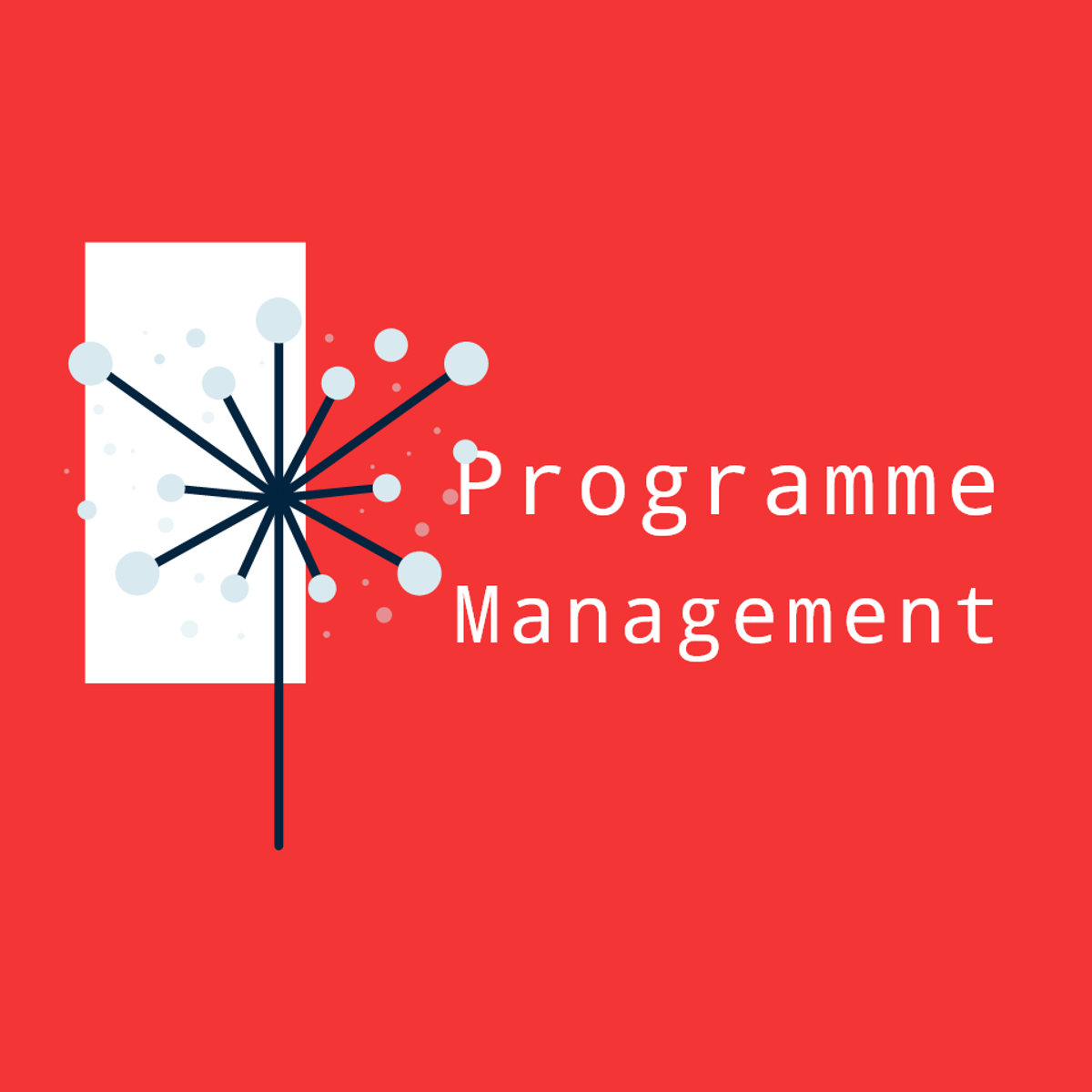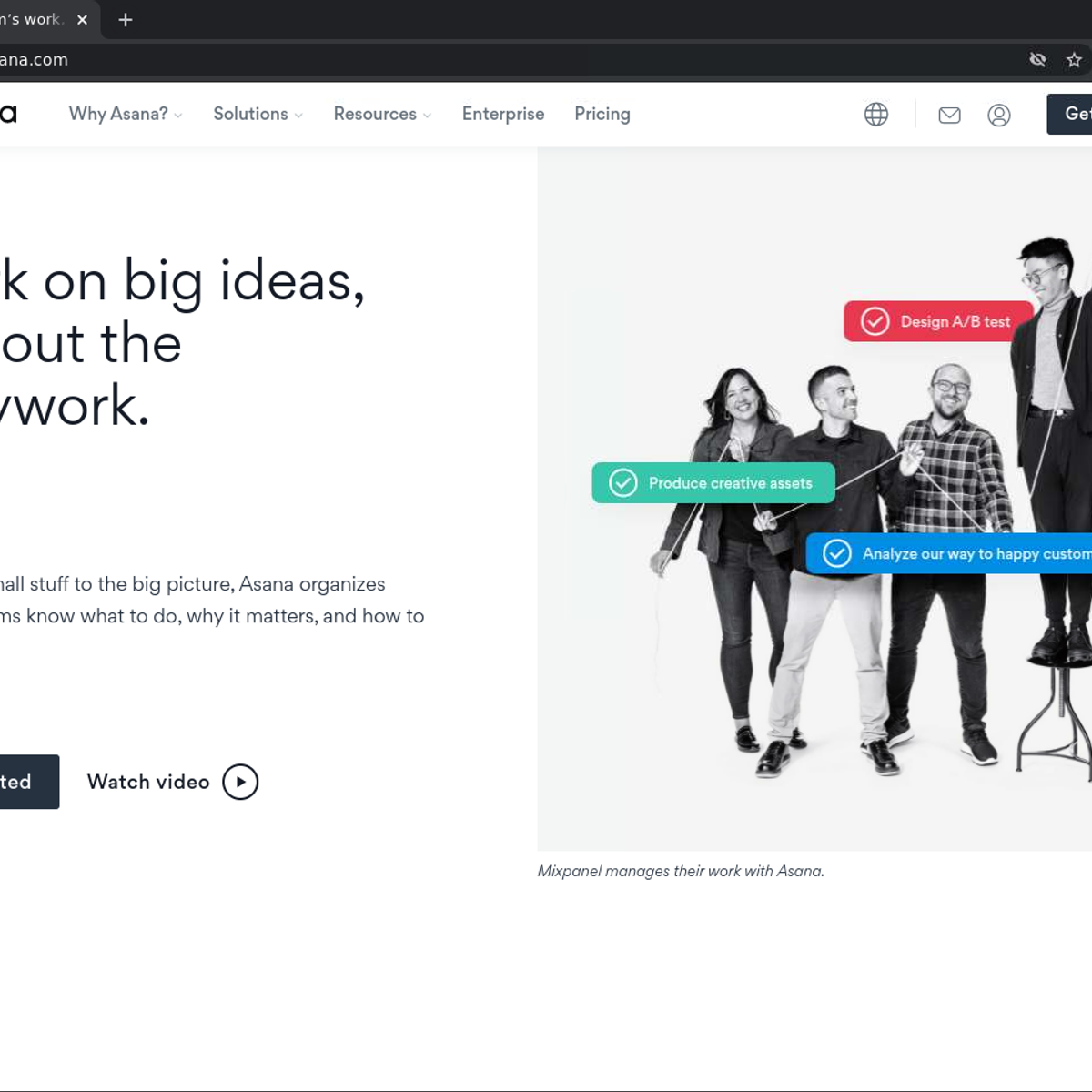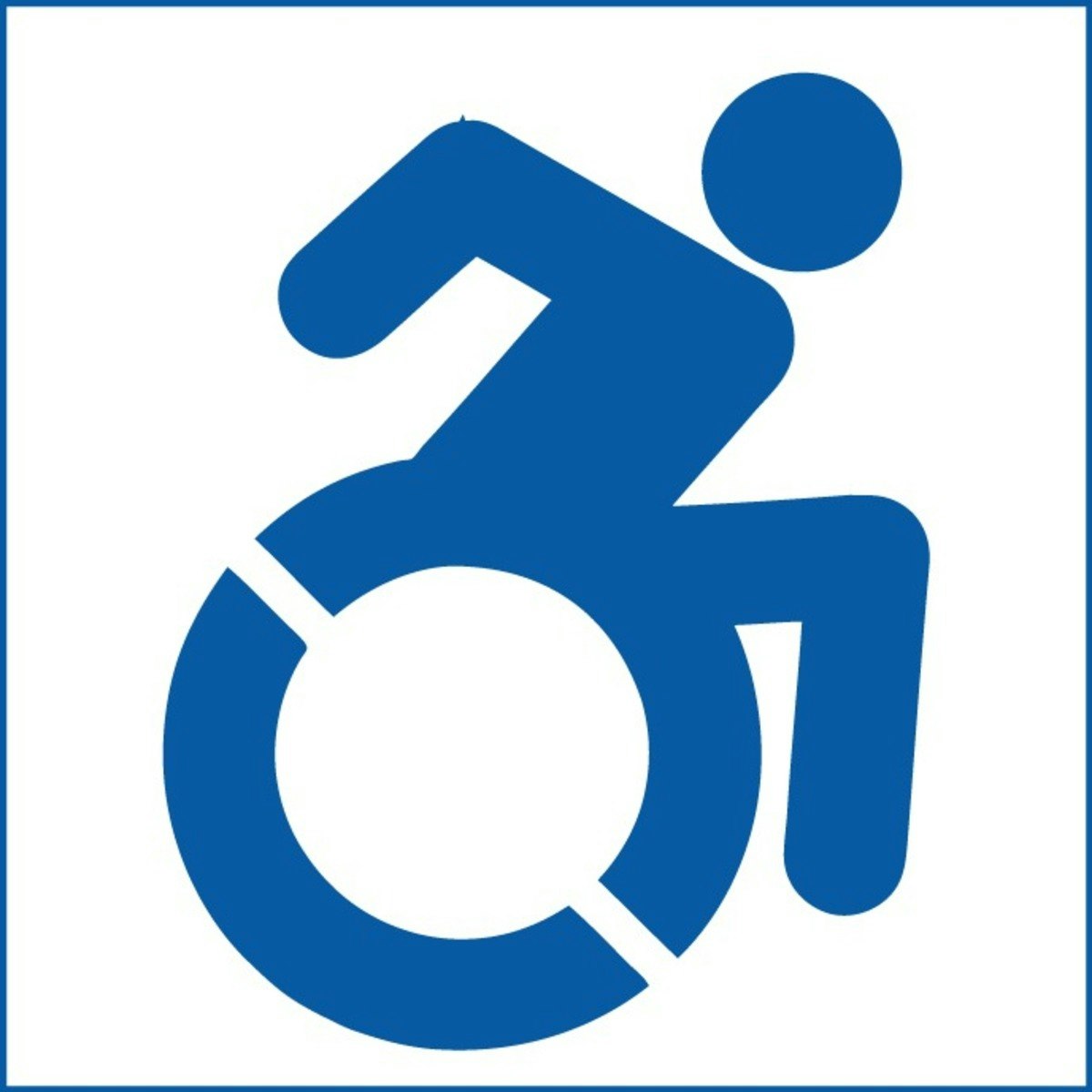Program Manager
Program Manager: A Career Overview
A Program Manager holds a strategic position within an organization, responsible for overseeing a group of related projects—known as a program—to ensure they collectively achieve larger business objectives. Unlike project managers who focus on individual project deliverables, program managers take a broader view, ensuring that multiple projects align with the company's overall strategy and deliver intended benefits. It's a role that requires a blend of strategic thinking, leadership, and organizational prowess.
Working as a Program Manager can be exciting for individuals who thrive on complexity and enjoy orchestrating large-scale initiatives. The role offers the opportunity to influence business strategy significantly, manage diverse teams, and navigate the intricate dependencies between various projects. If guiding multiple efforts towards a unified, strategic goal appeals to you, this career path might be a compelling choice.
Introduction to Program Management
Definition of a Program Manager
A Program Manager serves as a strategic leader, responsible for coordinating and overseeing a portfolio of interconnected projects, collectively referred to as a program. Their primary goal is to ensure these projects, often managed by individual Project Managers, work together harmoniously to achieve broader organizational goals and strategic outcomes. Think of them as the conductors of an orchestra, ensuring each section (project) plays its part correctly to produce a beautiful symphony (program success).
Program Managers operate at a higher level than Project Managers, focusing on the long-term benefits and strategic alignment of the program rather than just the specific deliverables of individual projects. They are concerned with the "why" behind the projects and how they contribute to the bigger picture.
This role often involves significant interaction with senior management and executives to ensure the program supports the company's strategic direction. They define the program's governance, manage overall budgets, and ensure resources are allocated effectively across projects.
Differentiation from Project Management
While Program Management and Project Management are related and often interact, they are distinct disciplines. The key difference lies in scope and focus. A Project Manager is responsible for the successful completion of a specific project with defined start and end dates, scope, and deliverables. Their focus is often tactical, centered on delivering the project on time and within budget.
A Program Manager, conversely, oversees a collection of related projects. Their focus is strategic and long-term, often without a fixed end date for the program itself. They manage the interdependencies between projects, aiming to maximize the overall benefits and value delivered to the organization. Programs are designed to achieve strategic initiatives, while projects deliver specific outputs contributing to those initiatives.
Another distinction is ambiguity. Projects typically start with clearly defined success criteria, minimizing ambiguity. Programs often navigate higher levels of uncertainty and may need to adapt their scope and constituent projects as the strategic landscape evolves. Program Managers work through this ambiguity to define overall program success.
Core objectives of the role
The core objective of a Program Manager is to successfully deliver the intended benefits and strategic outcomes of a program. This involves ensuring that the group of projects under their purview collectively contributes to the organization's strategic goals. They align project objectives with business strategy and ensure resources are used efficiently across the program.
Program Managers are responsible for managing dependencies between projects, resolving conflicts, and mitigating risks that could impact the program's overall success. They facilitate communication and collaboration across different project teams and stakeholders, ensuring everyone is working towards the common program goals.
Ultimately, a Program Manager aims to maximize the value derived from the program. This involves not just overseeing execution but also adapting the program strategy as needed, ensuring its continued relevance and contribution to the organization's long-term success.
Industries where Program Managers are prevalent
Program Managers are found across a wide range of industries, particularly those undertaking complex initiatives or large-scale transformations. The technology sector heavily relies on Program Managers to oversee the development and launch of complex software systems, hardware products, and digital services involving multiple interconnected projects.
Healthcare organizations employ Program Managers to coordinate initiatives like implementing new electronic health record systems, launching public health campaigns, or developing new clinical services. Similarly, the financial services industry utilizes Program Managers for regulatory compliance programs, digital transformation efforts, and launching new financial products.
Manufacturing, construction, aerospace, and government sectors also frequently employ Program Managers. In these fields, they might oversee the development of new product lines, large infrastructure projects, aircraft development programs, or the implementation of significant public policies, respectively. Essentially, any organization managing multiple related projects aimed at achieving strategic goals can benefit from Program Management.
Key Responsibilities of a Program Manager
Strategic alignment of cross-functional projects
A primary responsibility of a Program Manager is ensuring that all projects within their program are strategically aligned with the organization's broader objectives. This means understanding the company's strategic goals and ensuring each project contributes meaningfully towards achieving them. They act as the bridge between executive strategy and project execution.
This involves working closely with project managers and cross-functional teams to define project scopes, goals, and deliverables that support the overall program strategy. They must ensure that resources, timelines, and efforts across different projects are coordinated and optimized for strategic impact.
Program Managers continuously monitor the strategic landscape and the program's progress, making adjustments as needed to maintain alignment. This might involve reprioritizing projects, modifying scope, or even initiating new projects if required by shifts in business strategy or market conditions.
Stakeholder management and communication
Effective stakeholder management and communication are crucial for Program Managers. They interact with a wide range of stakeholders, including executive leadership, project managers, team members, customers, and external partners. Their role involves understanding stakeholder needs, managing expectations, and ensuring clear, consistent communication across the program.
Program Managers must proactively identify key stakeholders, analyze their interests and influence, and develop strategies to engage them effectively. This often involves regular reporting on program progress, risks, and milestones, tailored to the specific audience. They facilitate communication between different project teams and departments to ensure smooth collaboration.
Resolving conflicts between stakeholders with differing priorities is also a common responsibility. Strong communication and negotiation skills are essential for building consensus and maintaining stakeholder buy-in throughout the program lifecycle.
These courses provide foundational knowledge in stakeholder management and communication, crucial for coordinating complex programs.
Budget and timeline oversight
Program Managers hold ultimate responsibility for the overall program budget and timeline. While project managers handle the specifics for individual projects, the Program Manager ensures that the collective budgets and schedules align with the program's strategic goals and constraints.
This involves establishing the overall program budget, allocating funds to constituent projects, and monitoring spending across the program. They track the financial performance of the program, identify potential cost overruns, and implement corrective actions when necessary.
Similarly, they oversee the master schedule for the program, managing dependencies between projects and ensuring key milestones are met. They monitor the progress of individual projects and assess their impact on the overall program timeline, intervening to resolve delays or conflicts that could jeopardize program delivery.
Risk mitigation strategies
Identifying, assessing, and mitigating risks at the program level is a critical responsibility for Program Managers. They must look beyond individual project risks and consider threats and opportunities that could impact the entire program's objectives and benefits realization. This requires a strategic perspective on risk.
The Program Manager establishes the framework for risk management within the program, guiding project managers on how to identify and handle project-level risks. They consolidate project risks to understand the overall program risk exposure and develop comprehensive mitigation strategies for significant program-level risks.
This involves proactively identifying potential issues, analyzing their potential impact, and developing contingency plans. They monitor risks throughout the program lifecycle, adjusting strategies as needed and communicating risk status to key stakeholders to ensure informed decision-making.
These courses offer practical approaches to identifying and planning for risks within program structures.
Essential Skills and Competencies
Leadership vs. coordination skills
Program Managers require strong leadership skills, going beyond the coordination often associated with project management. While coordination—organizing tasks, resources, and schedules—is important, leadership involves setting the vision, motivating teams, influencing stakeholders, and driving strategic direction.
They must inspire and guide multiple project teams, often without direct authority over all team members. This requires building relationships, fostering collaboration, and creating a shared sense of purpose around the program's goals. Effective program leadership involves navigating complexity, making tough decisions, and empowering project managers.
While coordination ensures the operational aspects run smoothly, leadership ensures the program stays aligned with strategy and delivers meaningful value. Both skill sets are necessary, but the emphasis on strategic leadership distinguishes the Program Manager role.
Technical vs. soft skill balance
Successful Program Managers possess a balanced mix of technical and soft skills. Technical skills might include proficiency in project management software, understanding specific methodologies (like Agile or Waterfall), financial acumen for budget management, and potentially domain-specific knowledge relevant to the program's industry (e.g., software development, healthcare regulations).
However, soft skills are equally, if not more, critical. These include leadership, communication, negotiation, conflict resolution, stakeholder management, strategic thinking, and adaptability. Program Managers constantly interact with people, navigate organizational politics, and make high-level decisions, all requiring strong interpersonal and strategic capabilities.
The ideal balance varies depending on the specific program and industry. Highly technical programs may require a manager with deeper technical expertise, but strong soft skills are universally essential for managing the complexities and human dynamics inherent in any large program.
Tools proficiency (e.g., roadmapping software)
Proficiency with various tools is essential for Program Managers to effectively plan, track, and communicate program progress. Common tools include project and portfolio management (PPM) software like Microsoft Project, Jira, Asana, or ClickUp, which help manage tasks, schedules, resources, and dependencies across multiple projects.
Roadmapping software (e.g., Aha!, ProductPlan, Roadmunk) is often crucial for visualizing the program strategy, timelines, and key milestones for stakeholders. Collaboration platforms like Slack, Microsoft Teams, or Confluence are vital for communication and document sharing across distributed teams.
Additionally, familiarity with data analysis and visualization tools (like Excel, Tableau, or Power BI) helps Program Managers track key performance indicators (KPIs), analyze program data, and generate insightful reports for decision-making. While specific tool requirements vary, adaptability and the ability to quickly learn new software are valuable traits.
These courses provide hands-on experience with popular project and program management tools.
Industry-specific domain knowledge requirements
While core program management skills are transferable, specific domain knowledge related to the industry or functional area of the program is often highly beneficial, and sometimes required. A Program Manager leading a software development program, for instance, benefits immensely from understanding software development lifecycles, technologies, and common challenges.
Similarly, a Program Manager in healthcare might need knowledge of clinical workflows, regulatory compliance (like HIPAA), or healthcare IT systems. In construction, understanding building processes, safety regulations, and materials management is crucial. This industry context helps the Program Manager make more informed strategic decisions, communicate effectively with technical teams, and better anticipate risks.
While some Program Managers successfully transition between industries by focusing on core management principles, deep domain expertise can be a significant advantage, particularly for complex or highly specialized programs. Acquiring this knowledge may involve prior experience in the industry or dedicated learning efforts.
Formal Education Pathways
Relevant undergraduate degrees (e.g., business, engineering)
There isn't one single required undergraduate degree for becoming a Program Manager, but certain fields provide a strong foundation. Degrees in Business Administration or Management offer knowledge in organizational strategy, finance, leadership, and operations, which are all relevant to program management.
Engineering degrees (such as Industrial, Computer, or Mechanical Engineering) are common, especially for program managers in technology or manufacturing sectors. These degrees develop analytical thinking, problem-solving skills, and often provide technical domain expertise valuable for managing technical programs.
Other relevant fields include Computer Science, Information Technology, Economics, or even specific industry-related degrees (like Construction Management or Health Administration). Ultimately, a degree that develops strong analytical, organizational, and communication skills is beneficial.
Value of MBAs and specialized graduate programs
While not always mandatory, a Master of Business Administration (MBA) or a specialized graduate degree can significantly enhance a Program Manager's career prospects and capabilities. An MBA provides a broad understanding of business strategy, finance, marketing, and leadership, which directly supports the strategic nature of program management.
Specialized master's degrees, such as a Master's in Project Management, Engineering Management, or Information Systems, offer deeper knowledge in specific areas relevant to certain types of programs. These programs often delve into advanced methodologies, risk management techniques, and leadership strategies tailored to complex projects and programs.
Graduate degrees can be particularly valuable for those seeking senior leadership roles or looking to transition into program management from a purely technical background. They signal a commitment to management principles and can provide a competitive edge in the job market.
record:39dyqj
Certifications (PMP, Scrum Master)
Professional certifications are highly valued in the program and project management fields. The Project Management Professional (PMP) certification from the Project Management Institute (PMI) is globally recognized and demonstrates proficiency in project management principles and practices, which form the foundation of program management.
PMI also offers a specific Program Management Professional (PgMP) certification, designed for experienced program managers, validating advanced skills in managing multiple, related projects to achieve strategic objectives. This is considered a more senior-level credential than the PMP.
Certifications related to Agile methodologies, such as Certified ScrumMaster (CSM) or Professional Scrum Master (PSM), are also increasingly valuable, especially in industries like software development where Agile practices are common. These certifications demonstrate expertise in managing projects and programs using iterative and flexible approaches.
These courses can help you prepare for valuable PMP certification exams.
Consider these books for further study on project management principles and PMP preparation.
Research opportunities for academic track
For those interested in the academic side of program and project management, research opportunities exist within universities and specialized research institutions. Research often focuses on developing new methodologies, analyzing the effectiveness of different management approaches, or studying the impact of factors like leadership styles, organizational culture, or technology on program success.
Academics might investigate topics such as risk management in complex programs, benefits realization management, stakeholder engagement strategies in large initiatives, or the application of AI in program management. PhD programs in Business Administration, Management Science, Operations Research, or related fields often provide avenues for such research.
Contributing to the academic body of knowledge can involve publishing papers in peer-reviewed journals, presenting at conferences, and potentially influencing industry best practices and standards. This path typically requires advanced degrees and a strong interest in theoretical development and empirical investigation.
Online and Self-Directed Learning
Core competencies achievable through remote study
Many core competencies required for Program Management can be effectively developed through online courses and self-directed learning. Foundational knowledge in project management methodologies (like PMP principles or Agile frameworks), strategic planning, risk management, and financial oversight can be acquired through structured online programs.
Soft skills, while often best honed through practice, can also be learned and refined online. Courses focusing on leadership, communication strategies, negotiation tactics, conflict resolution, and stakeholder engagement provide valuable frameworks and techniques that learners can then apply in real-world or simulated scenarios.
Technical skills, such as proficiency in specific project management software, data analysis tools, or even industry-specific concepts, are readily available through online tutorials, guided projects, and specialized courses. The flexibility of online learning allows individuals to tailor their education to specific competency gaps or career goals.
These foundational courses cover key aspects of project and program management suitable for online learning.
Portfolio-building strategies for non-traditional candidates
For individuals transitioning into program management from unrelated fields or those without extensive formal project experience, building a compelling portfolio is crucial. Online courses often include hands-on projects or capstone assignments that can serve as initial portfolio pieces, demonstrating acquired skills and knowledge.
Volunteering to manage projects or programs for non-profit organizations or community groups offers valuable real-world experience and tangible results to showcase. Taking on project or program coordination responsibilities within your current role, even if unofficial, can also provide relevant experience.
Creating detailed case studies of projects managed (respecting confidentiality), documenting the processes used, challenges overcome, and results achieved, helps demonstrate practical application of skills. Contributing to open-source projects or initiating personal projects that require planning, coordination, and execution can also strengthen a portfolio.
Supplementing formal education with specialized topics
Online learning provides an excellent way to supplement formal education (like a bachelor's degree or MBA) with specialized knowledge relevant to program management. Even with a solid educational background, specific industries or programs may require niche expertise.
For example, someone with a business degree aiming for a tech program management role could take online courses in software development methodologies (Agile, Scrum), cloud computing basics, or cybersecurity fundamentals. A Program Manager in manufacturing might benefit from courses on Lean Six Sigma or supply chain management.
Online platforms offer courses on emerging trends like Artificial Intelligence in project management, advanced risk analytics, or specific PPM software tools. This targeted learning allows professionals to stay current, deepen their expertise, and tailor their skill set to specific career aspirations or program requirements.
Evaluating course quality and relevance
With thousands of online courses available, evaluating quality and relevance is key. Look beyond the course title; examine the syllabus or learning objectives to ensure the content aligns with your specific needs – whether it's foundational knowledge, specific skills, or certification prep.
Consider the credibility of the instructors and the institution or platform offering the course. Look for instructors with real-world program management experience or strong academic credentials. Reputable universities and well-known training providers often offer high-quality content.
Learner reviews and ratings provide valuable insights, but read them critically. Look for specific feedback on content quality, instructor engagement, and practical applicability. Consider the course format – does it include hands-on projects, case studies, or opportunities for interaction? Platforms like OpenCourser can help by aggregating courses, providing summaries, and often highlighting reviews and learner feedback, simplifying the evaluation process.
Program Manager Career Path and Progression
Typical entry-level prerequisites
Entering directly into a Program Manager role is uncommon; it's typically a mid-to-senior level position requiring prior experience. A common prerequisite is several years of experience as a Project Manager, demonstrating success in managing individual projects, budgets, schedules, and teams.
A bachelor's degree, often in fields like business, engineering, or computer science, is usually expected. While not always mandatory, certifications like the PMP can strengthen a candidate's profile, showcasing foundational project management knowledge.
Strong leadership potential, excellent communication skills, and demonstrated ability in stakeholder management are also key prerequisites, often developed through progressive project management roles. Some organizations may prefer candidates with an MBA or relevant master's degree, especially for highly strategic programs.
These books offer guidance for those starting out in project management.
Promotion trajectory within organizations
The career path for a Program Manager often involves progressing from managing smaller, less complex programs to overseeing larger, more strategic initiatives with greater scope, budget, and impact. An initial Program Manager role might focus on a specific product line or functional area.
With successful experience, one might advance to Senior Program Manager, managing multiple programs or particularly critical, high-visibility initiatives. This role typically involves greater strategic input, more significant stakeholder interaction (often at the executive level), and potentially mentoring junior program or project managers.
Further progression can lead to roles like Director of Program Management or Portfolio Manager, overseeing the entire portfolio of programs and projects within a business unit or the entire organization, ensuring alignment with corporate strategy and optimizing resource allocation across all initiatives.
Lateral moves to adjacent roles (product management, operations)
The skills and experience gained as a Program Manager open doors to various lateral career moves. A common transition is into Product Management, especially for those managing programs focused on product development. Program Managers already possess skills in strategy, stakeholder management, and overseeing execution, which are crucial in product roles.
Moves into Operations Management are also frequent. Program Managers develop strong organizational, process improvement, and resource management skills, which are highly valuable in optimizing business operations. Roles like Operations Director or Head of Operations are possible transitions.
Other potential lateral moves include roles in Business Analysis, Management Consulting (leveraging strategic and problem-solving skills), or potentially leading a Project Management Office (PMO), focusing on standardizing project and program management practices across an organization.
Executive-level opportunities (Director of Programs)
Experienced and successful Program Managers can progress to executive-level positions. A common path is becoming a Director of Program Management or Director of the Project Management Office (PMO), responsible for the overall program management function and strategy within a division or the entire company.
Further advancement might lead to Vice President (VP) roles, such as VP of Programs, VP of Strategy Execution, or even Chief Operating Officer (COO), particularly if the individual has demonstrated exceptional strategic leadership and operational expertise. In technology companies, roles like Chief Technology Officer (CTO) or Chief Product Officer (CPO) might be attainable for those with strong technical program management backgrounds.
Reaching these executive levels typically requires a proven track record of delivering complex, high-impact programs, exceptional leadership and strategic thinking skills, strong business acumen, and often, advanced education like an MBA.
Industry-Specific Variations
Tech vs. healthcare vs. government program management
While core principles remain, program management varies significantly across industries. In the tech sector, Program Managers (often called Technical Program Managers or TPMs) frequently oversee software development, product launches, or infrastructure rollouts. They often work closely with engineering and product teams, requiring technical literacy and familiarity with Agile methodologies.
record:26y55g
In healthcare, Program Managers might coordinate clinical trial programs, hospital system implementations, or public health initiatives. This requires understanding healthcare regulations (like HIPAA), clinical processes, and navigating complex stakeholder environments involving clinicians, administrators, and patients.
Government Program Managers often oversee large public sector initiatives, infrastructure projects, or policy implementation programs. This context demands navigating bureaucratic processes, managing public funds ethically, adhering to strict regulations, and engaging with diverse public stakeholders and political entities.
Compensation differences by sector
Program Manager salaries vary considerably depending on the industry, location, company size, and individual experience. Generally, the technology sector tends to offer higher compensation packages, often including base salary, bonuses, and stock options, reflecting the high demand for skilled technical program managers. According to Levels.fyi, the average total compensation for a Technical Program Manager in the US is around $225,000, with top companies like Facebook offering significantly more.
Financial services and consulting industries also typically offer competitive salaries for Program Managers due to the complexity and strategic importance of the programs managed. Healthcare, manufacturing, and non-profit sectors may offer slightly lower average base salaries, though compensation can still be substantial, especially for experienced managers overseeing critical programs.
ZipRecruiter reports an average annual pay of $107,460 for Program Managers across the US (as of April 2025), while Salary.com suggests an average of $139,829 (as of April 2025). These figures highlight the wide range and dependency on factors like industry and location. Higher cost-of-living areas like California often see higher average salaries; Salary.com notes an average of $154,231 in California.
Regulatory environment impacts
The regulatory environment significantly impacts program management practices in certain industries. In sectors like finance, healthcare, and pharmaceuticals, Program Managers must ensure their programs comply with stringent regulations (e.g., Sarbanes-Oxley, HIPAA, FDA guidelines). This adds layers of complexity to planning, execution, and risk management.
Compliance requirements often dictate specific processes, documentation standards, and approval workflows that must be integrated into the program plan. Program Managers in these fields need a strong understanding of the relevant regulatory landscape and must work closely with legal and compliance teams.
Failure to adhere to regulations can result in severe penalties, reputational damage, and program delays or cancellations. Therefore, managing regulatory risk and ensuring compliance are critical responsibilities for Program Managers in highly regulated industries.
Global market demand analysis
The demand for skilled Program Managers is strong globally, driven by increasing project complexity, digital transformation initiatives, and the need for strategic alignment across organizations. According to the Project Management Institute (PMI), millions of new project management-oriented roles, including program management, are expected globally in the coming years, particularly in developing economies like China and India.
Emerging markets often see high demand due to rapid infrastructure development and economic growth. Developed economies continue to need Program Managers for technology innovation, business process optimization, and managing large-scale organizational changes. Specific industry growth (like renewable energy, AI, or biotechnology) also fuels demand in related sectors.
While demand is widespread, specific requirements and compensation levels vary by region and country, influenced by local economic conditions, industry focus, and cost of living. Professionals with globally recognized certifications (like PgMP) and experience managing international programs may find themselves particularly sought after.
record:29z126
Tools and Methodologies
Common frameworks (Waterfall, Agile, Hybrid)
Program Managers often work within or adapt various project management frameworks depending on the nature of the program and its constituent projects. The traditional Waterfall model, with its sequential phases (initiation, planning, execution, monitoring, closing), is sometimes used for programs with well-defined scopes and stable requirements, common in construction or some manufacturing settings.
Agile methodologies (like Scrum or Kanban) emphasize iterative development, flexibility, and rapid response to change. While originating in software, Agile principles are increasingly applied at the program level, particularly in fast-paced environments like tech. Program Managers might oversee multiple Agile project teams, coordinating sprints and releases towards a larger program goal.
Often, a Hybrid approach is most practical at the program level. This blends elements of Waterfall (for overall structure, budgeting, and long-term planning) with Agile (for the execution of specific projects or workstreams). The Program Manager must determine the most suitable framework or combination of frameworks to optimize program delivery.
Data analytics and reporting tools
Data analytics and reporting are vital for Program Managers to monitor progress, make informed decisions, and communicate status effectively. They rely on tools to collect, analyze, and visualize data from across the program's projects. Basic tools like Microsoft Excel are often used for tracking budgets, resources, and simple metrics.
More sophisticated business intelligence (BI) tools like Tableau, Power BI, or Qlik Sense allow for creating dynamic dashboards and reports. These tools can integrate data from various sources (project management software, financial systems) to provide a holistic view of program health, track KPIs, identify trends, and forecast potential issues.
Project and portfolio management (PPM) software often includes built-in reporting and analytics capabilities. Program Managers use these features to generate status reports, resource utilization charts, risk assessments, and budget variance analyses for stakeholders.
Collaboration platforms
Effective collaboration is essential for program success, especially with teams often being cross-functional and geographically distributed. Program Managers rely heavily on collaboration platforms to facilitate communication, information sharing, and teamwork across the program.
Tools like Slack, Microsoft Teams, and Google Workspace provide real-time messaging, video conferencing, and shared channels for team discussions and updates. Document management and co-creation platforms like SharePoint, Google Drive, or Confluence allow teams to store, share, and collaboratively edit program documentation, plans, and reports.
Project management software itself often includes collaboration features, such as task comments, @mentions, and shared task boards (like those in Trello or Asana). These integrated features help keep communication tied directly to specific work items, improving context and traceability.
Emerging AI-assisted tools
Artificial Intelligence (AI) is increasingly influencing program and project management tools. AI is being integrated to automate routine tasks, enhance decision-making, and predict potential issues. Future trends suggest AI will play a larger role in streamlining program management.
AI-powered tools can assist with tasks like optimizing schedules, predicting task durations based on historical data, automating status report generation, and identifying potential risks by analyzing project data patterns. Some tools use Natural Language Processing (NLP) to analyze communications and identify sentiment or potential conflicts.
Chatbots are being developed to handle routine stakeholder queries or provide quick status updates. Predictive analytics, driven by AI, can help forecast budget overruns or schedule delays, allowing Program Managers to intervene proactively. While still evolving, AI promises to augment the Program Manager's capabilities, freeing them up for more strategic work. According to Gartner research cited by Motion, 80% of project management tasks might be automated by AI by 2030.
Ethical Considerations and Challenges
Conflict resolution in matrix organizations
Program Managers often operate within matrix organizations, where team members report to both a functional manager and one or more project/program managers. This structure can lead to conflicting priorities, resource allocation disputes, and communication challenges, creating ethical dilemmas.
Resolving these conflicts requires strong negotiation and mediation skills, coupled with fairness and transparency. Program Managers must balance the needs of the program with the priorities of functional departments and the well-being of team members. Ethical considerations involve ensuring equitable treatment, avoiding favoritism, and making decisions that serve the organization's best interests, not just the program's.
Clear communication channels, well-defined roles and responsibilities (often documented in a RACI matrix), and established escalation paths are crucial for managing conflicts ethically and effectively in a matrix environment.
Balancing stakeholder interests
Programs typically involve diverse stakeholders with varied, sometimes competing, interests and expectations. Program Managers face the ethical challenge of balancing these interests fairly while staying focused on the program's strategic objectives and the overall good of the organization.
This requires transparent communication, active listening to understand different perspectives, and finding compromises that are acceptable to key stakeholders without compromising the program's integrity or goals. Ethical decision-making involves prioritizing fairly, avoiding bias towards specific stakeholders, and ensuring decisions are well-documented and justifiable.
Maintaining trust and credibility with all stakeholders is paramount. This involves being honest about challenges and limitations, managing expectations realistically, and ensuring that stakeholder engagement processes are inclusive and equitable.
Sustainability integration
Integrating sustainability—considering environmental, social, and governance (ESG) factors—into program management is an emerging ethical consideration and challenge. Organizations are increasingly expected to manage the broader impacts of their initiatives beyond purely financial outcomes.
Program Managers may need to incorporate sustainability goals into program objectives, assess the environmental footprint of projects, ensure ethical sourcing in supply chains, or promote social equity through program activities. This requires expanding the traditional scope of program management to include non-financial performance metrics.
Challenges include defining relevant ESG metrics, collecting reliable data, balancing sustainability goals with budget and schedule constraints, and securing stakeholder buy-in for potentially costlier sustainable practices. However, ethically managing programs increasingly involves considering their long-term impact on the planet and society.
Diversity in program teams
Building and managing diverse program teams presents both opportunities and ethical challenges. Diversity in terms of background, experience, perspective, and demographics can foster innovation and improve problem-solving, leading to better program outcomes. However, ensuring inclusivity and equity within diverse teams requires conscious effort.
Program Managers have an ethical responsibility to foster an inclusive environment where all team members feel valued, respected, and have equal opportunities to contribute. This involves challenging biases (conscious and unconscious), promoting equitable practices in task assignment and recognition, and ensuring diverse voices are heard in decision-making.
Challenges include managing potential communication style differences, addressing microaggressions, and ensuring fair resource allocation and career development opportunities across a diverse team. Ethical leadership in program management requires championing diversity and inclusion actively.
Future Trends in Program Management
Impact of AI/automation
Artificial intelligence (AI) and automation are poised to significantly reshape program management. AI-driven tools will increasingly automate routine tasks like scheduling, reporting, and basic risk identification, freeing Program Managers to focus on more strategic activities like stakeholder engagement, complex problem-solving, and long-term planning. According to some reports, a large percentage of traditional project management tasks could be automated in the coming years.
Predictive analytics powered by AI will offer deeper insights into potential program risks, resource constraints, and budget deviations, enabling more proactive management. AI may also assist in optimizing resource allocation across projects and suggesting strategic adjustments based on real-time data.
While AI will augment capabilities, it's unlikely to replace the Program Manager entirely. Human skills like leadership, strategic thinking, emotional intelligence, complex negotiation, and ethical judgment will remain critical and may become even more valued.
record:7
record:19
Remote team management evolution
The shift towards remote and hybrid work models, accelerated by recent global events, is driving an evolution in remote team management practices. Program Managers increasingly need skills to lead and coordinate teams that are geographically dispersed and may operate across different time zones.
This requires greater reliance on digital collaboration tools, establishing clear communication protocols, and fostering team cohesion and culture in a virtual environment. Measuring productivity and ensuring engagement for remote teams demands new approaches beyond traditional office-based oversight.
Future trends include the refinement of virtual leadership skills, increased use of asynchronous communication methods, and potentially leveraging technologies like VR/AR for more immersive remote collaboration. Effectively managing remote programs will be a key competency for future Program Managers.
record:5
record:30
Changing certification requirements
Certification bodies like PMI are continually evolving their standards and requirements to reflect changes in the profession. Future trends may see increased emphasis on Agile and Hybrid methodologies within certifications like PMP and PgMP, reflecting their growing adoption in practice.
Skills related to digital transformation, data analytics, AI literacy, and change management are becoming more important, and certification exams may increasingly test knowledge in these areas. There might also be a greater focus on "power skills" or soft skills like emotional intelligence, communication, and leadership, acknowledging their critical role in program success.
Specialized micro-credentials or badges focusing on specific skills (e.g., risk management, Agile coaching, sustainability in projects) might become more common, allowing professionals to demonstrate expertise in niche areas alongside broader certifications. Staying updated on certification trends is important for career development.
Global economic factors affecting demand
Global economic conditions significantly influence the demand for Program Managers. During periods of economic growth, organizations invest more in expansion, innovation, and transformation initiatives, leading to increased demand for Program Managers to lead these complex programs.
Conversely, economic downturns may lead organizations to focus on cost-cutting and efficiency, potentially reducing the number of new large-scale programs initiated. However, Program Managers might still be in demand for restructuring programs, process improvement initiatives, or managing critical existing programs more efficiently.
Globalization continues to drive demand for Program Managers who can navigate cross-cultural complexities and manage international programs. Industry-specific trends, such as growth in renewable energy, advancements in biotechnology, or shifts in regulatory landscapes, also create pockets of high demand irrespective of the broader economic climate.
record:25
Frequently Asked Questions
Program Manager vs. Product Manager: Key differences?
While both roles are strategic and involve cross-functional collaboration, Program Managers and Product Managers have different primary focuses. A Program Manager oversees a collection of related projects to achieve broad strategic business objectives. Their focus is on the successful execution and benefit realization of the entire program.
A Product Manager is typically responsible for the strategy, roadmap, and feature definition for a specific product or product line. They focus on understanding market needs, defining what product to build, and guiding its development and launch to achieve market success and meet user needs. Their focus is on the product's lifecycle and market fit.
Often, a Program Manager might oversee a program that includes the development of a product managed by a Product Manager. The Program Manager ensures the product development project aligns with the overall program goals, while the Product Manager focuses on the product itself.
Can I transition from technical roles without an MBA?
Yes, transitioning from a technical role (like engineering or software development) to a Program Manager role without an MBA is definitely possible, although an MBA can be beneficial. Many successful Program Managers come from technical backgrounds, leveraging their deep domain expertise.
The key is to supplement technical skills with project and program management knowledge, leadership capabilities, and business acumen. This can be achieved through targeted online courses, certifications (like PMP or PgMP), gaining project management experience within your technical role, or seeking mentorship.
Highlighting transferable skills like problem-solving, analytical thinking, and managing complex technical tasks is important. Demonstrating leadership potential, strong communication skills, and an understanding of business strategy will be crucial for making the transition successfully.
Is certification more valuable than experience?
Both certification and experience are highly valuable for Program Managers, and often they complement each other. Experience demonstrates practical application of skills, the ability to navigate real-world complexities, and a track record of delivering results. Employers highly value proven experience, especially in managing large or complex programs.
Certifications (like PMP or PgMP) validate foundational knowledge, understanding of best practices, and commitment to the profession. They provide a standardized measure of competency and can be particularly helpful when transitioning roles or industries, or when an employer uses them as a screening criterion.
Ideally, candidates possess both relevant experience and appropriate certifications. For senior Program Manager roles, extensive, successful experience often carries more weight, but certifications remain a valuable credential that can enhance credibility and marketability.
Typical career timeline to senior positions?
The timeline to reach a senior Program Manager position varies based on individual performance, company structure, industry, and opportunities. Generally, it requires significant prior experience. A common path involves 3-5+ years as a successful Project Manager before moving into an initial Program Manager role.
From there, progressing to a Senior Program Manager might take another 3-7 years of successfully managing increasingly complex programs. Reaching Director-level or VP-level positions typically requires 10-15+ years of combined project and program management experience, demonstrating strong strategic leadership and business impact.
Accelerating this timeline often involves proactively seeking challenging assignments, demonstrating exceptional leadership and results, pursuing relevant education or certifications, and developing strong networks within the organization and industry.
How recession-proof is this career?
While no career is completely recession-proof, Program Management tends to be relatively resilient compared to some roles. During economic downturns, organizations often prioritize strategic initiatives focused on efficiency, cost reduction, or critical transformations – programs that require skilled oversight.
Program Managers with strong track records in delivering essential programs, managing budgets effectively, and driving strategic change remain valuable assets. Their ability to manage complex initiatives and ensure alignment with shifting business priorities can be crucial during turbulent times.
However, the demand can shift. Non-essential or purely growth-focused programs might be paused or cancelled during recessions. Versatility, adaptability, strong financial acumen, and experience in critical sectors (like healthcare, essential technology, or government) can enhance a Program Manager's resilience during economic uncertainty.
Remote work opportunities in the field?
Remote work opportunities for Program Managers have significantly increased and are expected to remain prevalent. Many aspects of the role, including planning, communication, stakeholder management, and monitoring progress, can be performed effectively using digital collaboration tools.
Companies across various industries, particularly in technology, finance, and consulting, now offer remote or hybrid Program Manager positions. This allows organizations to access a wider talent pool and offers professionals greater flexibility. According to PMI research, a significant percentage of project management professionals work remotely at least part-time.
Success in remote program management requires strong self-discipline, excellent virtual communication skills, proficiency with collaboration technologies, and the ability to build relationships and lead teams without in-person interaction. As remote work becomes more standard, these skills will be increasingly essential.
record:33
record:5
Embarking on Your Program Management Journey
The path to becoming a Program Manager is one of strategic leadership, complex problem-solving, and impactful execution. It demands a blend of technical understanding, business acumen, and exceptional interpersonal skills. While challenging, it offers the reward of shaping significant organizational initiatives and driving strategic change.
For those considering this career, whether transitioning from project management, a technical field, or another area, the journey requires continuous learning and development. Building foundational knowledge through formal education or online courses, gaining practical experience managing projects, and honing leadership skills are essential steps. Remember that platforms like OpenCourser offer vast resources to explore relevant courses and map out your learning path.
While the role demands rigor and strategic insight, it is attainable with dedication and the right preparation. Embrace the challenges, focus on developing the necessary competencies, and leverage available resources. Your journey towards becoming a Program Manager can be a fulfilling one, leading to a career where you orchestrate complex efforts to achieve significant, lasting outcomes.

















































